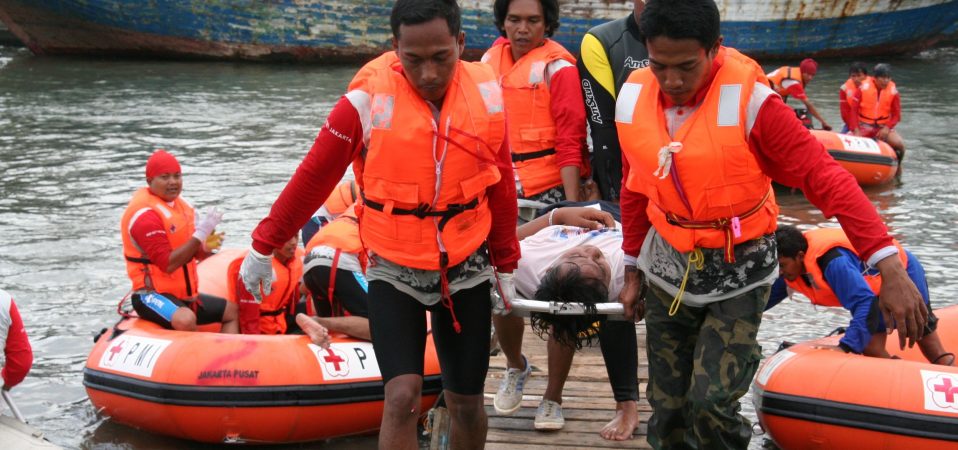
It was the experiences of the 2004 Indian Ocean Tsunami that helped give shape to the IFRC Disaster Law Programme and was one of the main triggers for recognizing the importance of having clear rules in place for coordinating and managing foreign disaster assistance globally. This also gave rise to Indonesia’s own Disaster Management Law of 2007, which is considered one of the better examples of disaster risk management legislation in the region. Furthermore, Indonesia is one of the few countries that have formally created a National Platform for Disaster Risk Reduction, the ‘Planas-PRB’. Palang Merah Indonesia (PMI), the Red Cross Society of Indonesia and IFRC are active members of this platform and have recently been discussing how to work together and contribute to potential revisions of the Disaster Management Law as well as their ongoing contribution to Indonesia’s National Disaster Response Framework which is currently under development.
In preparation for this, Red Cross will be conducting research on integrating disaster risk reduction, climate change adaptation, and spatial policy in Indonesia. The research forms part of the recommendations of the recent report Strengthening Law and DRR in Indonesia: Checklist Assessment Report launched by PMI and IFRC last year. The report used the “Checklist on Law and DRR” to evaluate the strengths and opportunities of the Indonesian legal framework on the subject. The new research will be taken forward under the Partners for Resilience, a coalition advocating for integrated risk management as an approach towards building resilience of which PMI is an active member.
 Whilst in Jakarta, IFRC took the opportunity to meet with the ASEAN Secretariat to discuss the current partnership on a disaster law mapping initiative in South East Asian. This mapping is exploring the institutionalization of preparedness and response provisions in the ASEAN Agreement on Disaster Management and Emergency Response(AADMER) in domestic law and policy in ASEAN Countries. As part of this research, a consultation is proposed next month with government and National Society representatives from across the region.
Whilst in Jakarta, IFRC took the opportunity to meet with the ASEAN Secretariat to discuss the current partnership on a disaster law mapping initiative in South East Asian. This mapping is exploring the institutionalization of preparedness and response provisions in the ASEAN Agreement on Disaster Management and Emergency Response(AADMER) in domestic law and policy in ASEAN Countries. As part of this research, a consultation is proposed next month with government and National Society representatives from across the region.
The disaster law mapping research forms part of the cross-cutting strategy of institutionalizing the AADMER, considered as one of the six buildings blocks of the AADMER Work Programme 2016-2020. It seeks to contribute to Priority Programme 3 on Advance by “strengthening institutional capacity and policy frameworks for effective implementation of DRR and CCA actions.”
IFRC looks forward to its continued engagement with ASEAN and Indonesia on disaster law initiatives. The positive momentum and leadership demonstrated by the Government for Indonesia and its National Society, PMI, continues to inspire the disaster law team and serve as a model of good practice globally.
Gabrielle Emery, Coordinator for Asia Pacific Disaster Law Programme at Gabrielle.Emery@ifrc.org
![]()

